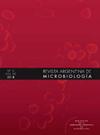The potential use of arginine kinase from the brown tick Rhipicephalus sanguineus as a biomarker for vector exposure in the surveillance of Rocky Mountain spotted fever
IF 2.1
4区 生物学
Q4 MICROBIOLOGY
引用次数: 0
Abstract
The brown dog tick (Rhipicephalus sanguineus) is the vector of Rickettsia rickettsii, the causative agent of Rocky Mountain spotted fever (RMSF) in Northern Mexico and Southwestern United States. The immune response to a tick protein in the sera of humans or animals may reveal the zones with a high propensity to acquire RMSF, and vector control strategies may be focused on these zones. Arginine kinase (AK) is a highly antigenic invertebrate protein that may serve as a marker for tick exposure. We used R. sanguineus recombinant AK in an indirect ELISA assay with RMSF-positive patient sera. The response to AK was significantly higher against the sera of RMSF patients than the control sera from healthy participants without contact with dogs. To validate the antigenicity of tick AK, we mutated one predicted conformational epitope to alanine residues, which reduced the recognition by RMSF patients’ immunoglobulins. This preliminary result opens a perspective towards the development of a complimentary technique based on RsAK as an antigen biomarker for vector serological surveillance for Rickettsia RMSF prevention.
将棕色蜱 Rhipicephalus sanguineus 的精氨酸激酶用作监测落基山斑疹热的病媒接触生物标志物的可能性。
棕狗蜱(Rhipicephalus sanguineus)是落基山斑疹热(RMSF)病原体立克次体在墨西哥北部和美国西南部的传播媒介。人或动物血清中对蜱蛋白的免疫反应可能会揭示洛矶山斑疹热的高发区,病媒控制策略可能会侧重于这些区域。精氨酸激酶(AK)是一种高抗原性的无脊椎动物蛋白,可作为蜱接触的标记物。我们使用 R. sanguineus 重组 AK 与 RMSF 阳性患者血清进行间接 ELISA 检测。RMSF 患者血清对 AK 的反应明显高于未接触过狗的健康参与者的对照血清。为了验证蜱虫 AK 的抗原性,我们将一个预测的构象表位突变为丙氨酸残基,从而降低了 RMSF 患者免疫球蛋白的识别率。这一初步结果为开发基于RsAK的辅助技术开辟了前景,RsAK是一种抗原生物标记物,可用于预防立克次体RMSF的病媒血清学监测。
本文章由计算机程序翻译,如有差异,请以英文原文为准。
求助全文
约1分钟内获得全文
求助全文
来源期刊

Revista Argentina de microbiologia
MICROBIOLOGY-
CiteScore
3.30
自引率
0.00%
发文量
46
审稿时长
>12 weeks
期刊介绍:
La Revista Argentina de Microbiología es una publicación trimestral editada por la Asociación Argentina de Microbiología y destinada a la difusión de trabajos científicos en las distintas áreas de la Microbiología. La Asociación Argentina de Microbiología se reserva los derechos de propiedad y reproducción del material aceptado y publicado.
 求助内容:
求助内容: 应助结果提醒方式:
应助结果提醒方式:


